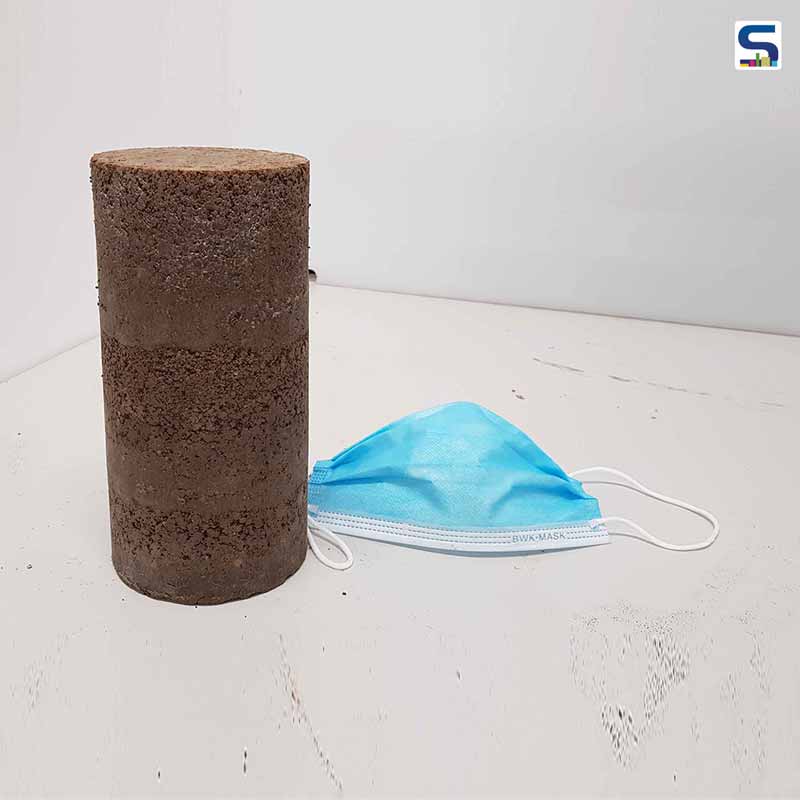
Face masks have become a part of our daily life. However, since most of these masks are plastic and are meant for only single use are adding to already overwhelming burden of the non-biodegradable waste on Earth. According to a report by the Central Pollution Control Board (CPCB) in the National Green Tribunal, India generates about 101 Metric Tonnes per day (MT/day) of COVID-19 related bio-medical waste. This quantity is in addition to normal bio-medical waste generation of about 609 MT per day.
Experts across the world are looking to find solution to dispose of this waste without affecting the global environment. In the similar wake, researchers at RMIT University in Australia showed how disposable face masks could be recycled to make roads.
Also read: This Young Man Is Converting Discarded Masks And PPE Kits Into Eco-Bricks
I KM = 3MN FACE MASKS
The researchers at RMIT have developed a unique road material made of shredded single-use face masks and processed building rubble. The material meets civil engineering safety standards. The study showed that in one kilometre of two-lane road, 3 million face masks could be used, preventing 93 tonnes of waste from going to the landfill.
Roads consist of four layers, a subgrade, base, sub-base and asphalt in top. Each layer have to be strong and flexible to withstand the pressure of heavy vehicles. Processed building rubble (also known as recycled concrete aggregate or RCA) can potentially be used on its own for the three base layers. However, the researchers found that face masks help add stiffness and strength to the material.
Read more: Double Curved Insulated Glass Will Clad the ‘2 Murray Road’ Office Tower in Hong Kong | ZHA Reveals Design
The optimal mixture consists of 1% shredded masks and 99% RCA, delivering on strength while maintaining good cohesion between the two materials. The mixture performs well in tests for stress, acid and water resistance, as well as strength, deformation and dynamic properties.
The study used unused surgical face masks, but other studies address the concern of hygiene. Used masks can easily be disinfected by being sprayed by an antiseptic solution and theN microwaved for one minute. The team also looked into using masks as an aggregate material in making concrete, with promising preliminary findings.
Read more: The Luxury Homes in Bengaluru and Pune Are Seeing Highest NRI Demand Post-COVID-19
First author Dr Mohammad Saberian said multidisciplinary and collaborative approaches were now needed to tackle the environmental impact of COVID-19, particularly the risks associated with the disposal of used PPE. “This initial study looked at the feasibility of recycling single-use face masks into roads and we were thrilled to find it not only works, but also delivers real engineering benefits,” Saberian said.
“We hope this opens the door for further research, to work through ways of managing health and safety risks at scale and investigate whether other types of PPE would also be suitable for recycling.”
Text & Images: RMIT
Keep reading SURFACES REPORTER for more such articles and stories.
Join us in SOCIAL MEDIA to stay updated
SR FACEBOOK | SR LINKEDIN | SR INSTAGRAM | SR YOUTUBE| SR TWITTER
Further, Subscribe to our magazine | Sign Up for the FREE Surfaces Reporter Magazine Newsletter
You may also like to read about:
& more...